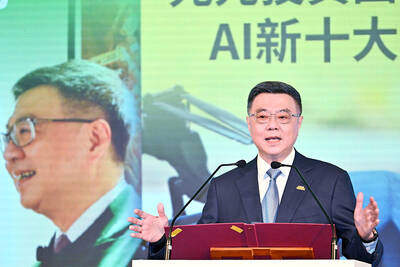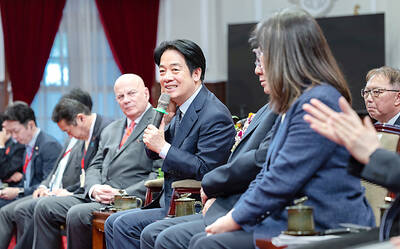The first US surgeon general appointed by President George W. Bush accused the administration on Tuesday of political interference and muzzling him on key issues like embryonic stem cell research.
"Anything that doesn't fit into the political appointees' ideological, theological or political agenda is ignored, marginalized or simply buried," Richard Carmona, who was surgeon general from 2002 until last year, told a House of Representatives committee.
"The problem with this approach is that in public health, as in a democracy, there is nothing worse than ignoring science, or marginalizing the voice of science for reasons driven by changing political winds. The job of surgeon general is to be the doctor of the nation, not the doctor of a political party," Carmona said.
He said administration political appointees censored his speeches and kept him from talking out publicly about certain issues, including the science on embryonic stem cell research, contraceptives and his misgivings about the White House's embrace of "abstinence-only" sex education.
Carmona's comments came two days before a Senate committee is due to hold a hearing on Bush's nomination of James Holsinger as his successor.
The administration allowed Carmona to finish his term as surgeon general last year without a replacement in place.
Gay rights activists and several leading Democrats have criticized Holsinger for what they see as "anti-gay" writings, but the White House has defended him as well qualified.
White House spokesman Tony Fratto said Carmona was given the authority and had the obligation to be the leading voice for the health of all Americans.
"It's disappointing to us if he failed to use his position to the fullest extent in advocating for policies he thought were in the best interests of the nation. We believe Dr. Carmona received the support necessary to carry out his mission," Fratto said.
In the past US surgeons general have issued influential reports on subjects including smoking, AIDS and mental health.
A report condemning secondhand smoke was a hallmark of Carmona's tenure.
But another report, on global health challenges, was never released after the administration demanded changes that he refused to make, Carmona said.
"I was told this would be a political document or you're not going to release it," he said.
He also said he was not allowed to make a speech at the Special Olympics because it was viewed as benefiting a political opponent. However, he said he was asked to speak at events designed to benefit Republican lawmakers.
Carmona said he was astounded at the partisanship and manipulation he faced as political appointees hemmed him in.
Bush in 2001 allowed federal funding for human embryonic stem cell research, but only with heavy restrictions that many scientists condemn as stifling.
Carmona said the administration prevented him from voicing views on stem cell research. He said he was prevented from talking publicly even about the science underpinning the research to enable the US public to have a better understanding of a complicated issue.
He said most of the public debate over the matter has been driven by political, ideological or theological motivations.
"I was blocked at every turn. I was told the decision had already been made -- stand down, don't talk about it," he said.

Two US House of Representatives committees yesterday condemned China’s attempt to orchestrate a crash involving Vice President Hsiao Bi-khim’s (蕭美琴) car when she visited the Czech Republic last year as vice president-elect. Czech local media in March last year reported that a Chinese diplomat had run a red light while following Hsiao’s car from the airport, and Czech intelligence last week told local media that Chinese diplomats and agents had also planned to stage a demonstrative car collision. Hsiao on Saturday shared a Reuters news report on the incident through her account on social media platform X and wrote: “I

STILL ON THE TABLE: The government is not precluding advanced nuclear power generation if it is proven safer and the nuclear waste issue is solved, the premier said Taiwan is willing to be in step with the world by considering new methods of nuclear energy generation and to discuss alternative approaches to provide more stable power generation and help support industries, Premier Cho Jung-tai (卓榮泰) said yesterday. The government would continue to develop diverse and green energy solutions, which include considering advances in nuclear energy generation, he added. Cho’s remarks echoed President William Lai’s (賴清德) comments in an interview last month, saying the government is not precluding “advanced and newer nuclear power generation” if it is proven to be safer and the issue of nuclear waste is resolved. Lai’s comment had

‘BUILDING PARTNERSHIPS’: The US military’s aim is to continue to make any potential Chinese invasion more difficult than it already is, US General Ronald Clark said The likelihood of China invading Taiwan without contest is “very, very small” because the Taiwan Strait is under constant surveillance by multiple countries, a US general has said. General Ronald Clark, commanding officer of US Army Pacific (USARPAC), the US Army’s largest service component command, made the remarks during a dialogue hosted on Friday by Washington-based think tank the Center for Strategic and International Studies. Asked by the event host what the Chinese military has learned from its US counterpart over the years, Clark said that the first lesson is that the skill and will of US service members are “unmatched.” The second

STANDING TOGETHER: Amid China’s increasingly aggressive activities, nations must join forces in detecting and dealing with incursions, a Taiwanese official said Two senior Philippine officials and one former official yesterday attended the Taiwan International Ocean Forum in Taipei, the first high-level visit since the Philippines in April lifted a ban on such travel to Taiwan. The Ocean Affairs Council hosted the two-day event at the National Taiwan University Hospital International Convention Center. Philippine Navy spokesman Rear Admiral Roy Vincent Trinidad, Coast Guard spokesman Grand Commodore Jay Tarriela and former Philippine Presidential Communications Office assistant secretary Michel del Rosario participated in the forum. More than 100 officials, experts and entrepreneurs from 15 nations participated in the forum, which included discussions on countering China’s hybrid warfare